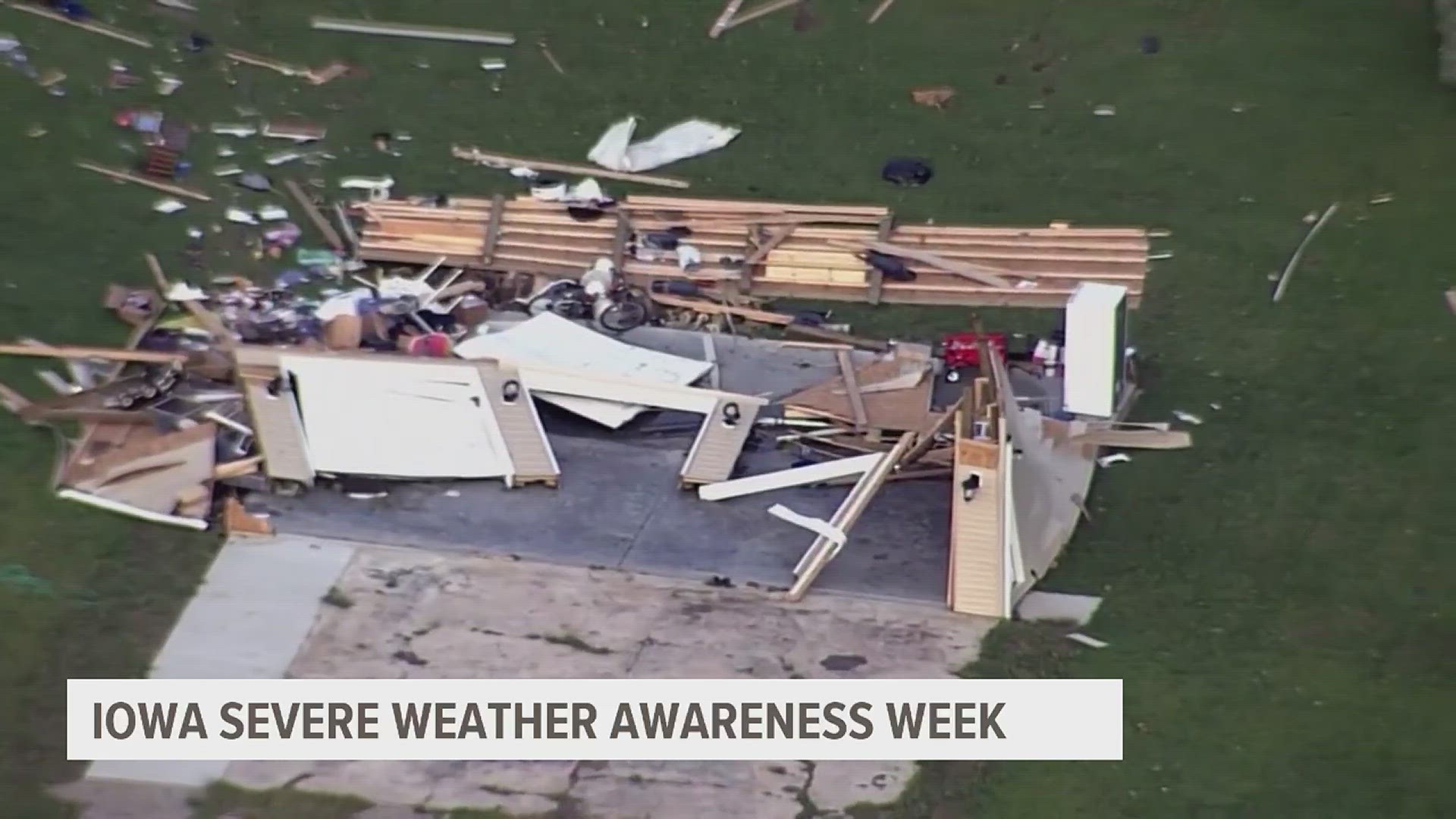IOWA, United States — It is Severe Weather Awareness Week in Iowa from March 27-31, and experts will be the first to tell you that severe weather is nothing to mess around with.
"If you're going to be out traveling during severe weather, keeping an eye on radar trends and all the warnings," National Weather Service - Quad Cities Warning Coordination Meteorologist Rich Kinney said.
Severe Weather Awareness Week is a time to remind people of the importance of preparing for severe weather, and in the Quad Cities, we're no strangers to severe weather.
Each day of the week focuses on a different type of severe weather. You can see those different types by clicking/tapping here.
Officials from the National Weather Service said the most important thing in a severe weather situation is having multiple ways to be notified, whether that be through an app or a National Oceanic and Atmospheric Administration Radio.
"If you're in the tornado warning polygon, your phone should alert," Kinney said. "If you're outside of that polygon, it should not alert and the technology, and the accuracy has gotten pretty good."
When it comes to tornadoes, Kinney said to use your basement or an interior bathroom as a shelter if a tornado should happen in the Quad Cities area. If you live in a manufactured home, officials said to find the nearest designated storm shelter because a manufactured home is not a safe place to be during a tornado.
"Getting yourself ready so that as we head into the actual snow melt, and we get that snow melt water into the river system, and it starts moving down the Mississippi and or our area that you're able to make those adjustments and take all of those precautions, whether it's building a temporary levee or whatever the favorable option is," Kinney said in regards to flood preparations.
When it comes to flooding, Kinney said businesses and homes should practice those flood preparation plans, such as sandbagging and making sure you have enough supplies should a flood happen.
For tornadoes, Kinney said if you're traveling, do not take shelter under underpasses because of potential traffic jams. Also, only drive out of the path of a tornado if it's absolutely safe to do so.
"You can get into a ditch or a lower spot. You can lay in that area and cover your head," Kinney said. "Maybe you don't have that type of thing available, you could stay in your vehicle and keep your head down so that you're not in the path of any flying projectiles through the vehicle."
Officials said it's always best to have a plan ahead of time and to practice those plans with your family.
Follow this link here, from the U.S. Department of Homeland Security and the Federal Emergency Management Agency, to find out if you live in an area that's more prone to flooding. Also through the link are tips on flooding and home insurance, in case of home damage from flooding.

